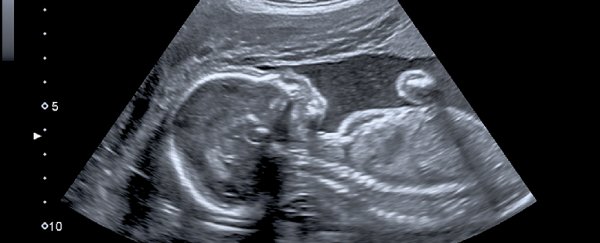For the first time in the UK, babies have received spinal surgery while still in the womb to treat a developmental defect known as spina bifida.
Previously, mothers have had to travel abroad for this procedure. With years of research showing the benefits of conducting surgery prior to birth, British medical practitioners are now convinced it's well worth the risks.
A team of 30 medical staff a carried out two 90 minute surgeries over the summer at the University College Hospital in London, repairing a small opening in the spinal columns of infants while they were still gestating.
The procedure isn't without risks - not only to the child, but the mother as well. While this type of surgery has been performed in numerous other countries, including the US and Australia, medical experts in the UK have been a little more hesitant.
Foetal surgery for spina bifida has been available to UK residents under the NHS for a number of years, but families have needed to travel to places like Belgium to have it done.
"It's fantastic. Women now don't have to travel out of the UK," surgery coordinator Anna David from the University College in London told The Guardian.
"They can have their family with them. There are less expenses. So all good things."
Spina bifida is a condition where the development of the spinal column's bones and membranes is incomplete, exposing the spinal cord, usually towards the lower back.
Roughly one in every 1,000 births in the UK has some form of neural tube defect like spina bifida, which is believed to have genetic links, and is also associated with a low intake of folic acid.
The most severe form of the defect, called a myelomeningocele, can result in problems ranging from incontinence to difficulty walking, to possible learning difficulties.
In the past, surgeons would close the exposed spine once the child has been born and is strong enough to undergo an invasive medical procedure.
This procedure entails closing the exposed section, and temporarily adding a shunt to drain any build-up of spinal fluid.
Two decades ago, a team of US surgeons from The Children's Hospital of Philadelphia successfully closed the gap on a 23-week-old foetus while it was still in the womb.
Today, the procedure is much the same – an incision in the mother's womb gives doctors access to the child, allowing surgeons to cover the exposed membranes.
The foetus is then safely ensconced in the womb for another couple of months, until it undergoes a caesarean delivery at 37 weeks.
While exposing a growing foetus in this delicate state comes with a multitude of challenges, with a chance of serious complications such as premature labour or infection, this early intervention helps reduce the damage caused by exposing the tissues to amniotic fluid.
This makes it an ethical dilemma – do you give the growing child the best chance of recovery, but at the possible expense of death or severe disability?
Since then, studies have shown that this surgical approach, on balance, is the best way to go.
One famous piece of research called Management of Myelomeningocele Study (MOMS) published in 2011 found earlier intervention significantly reduced the need for shunts and improved motor outcomes for the young child.
"There were some children who had grown up following foetal surgery who were walking, and you wouldn't expect them to be walking if they hadn't had it," David explained to The Guardian.
The surgery isn't a cure, as such, but does dramatically improve outcomes for the child. And now families in the UK can breathe more easily knowing they can also take advantage of this ground-breaking procedure.
